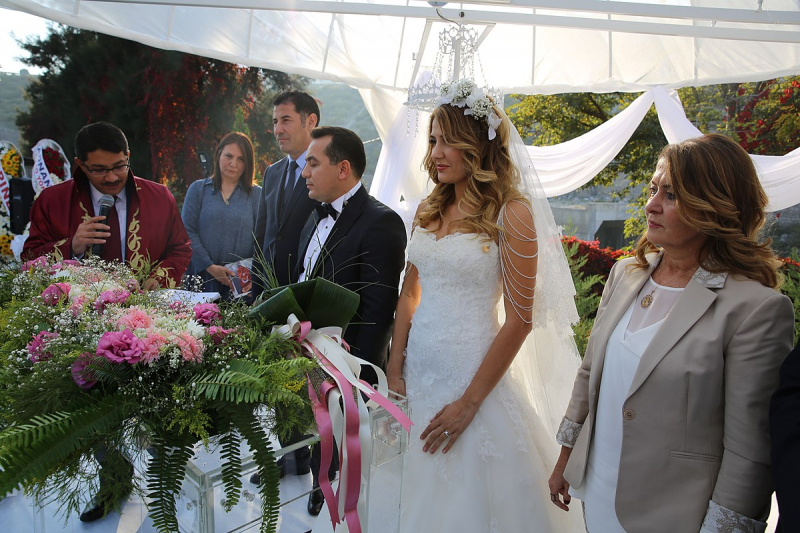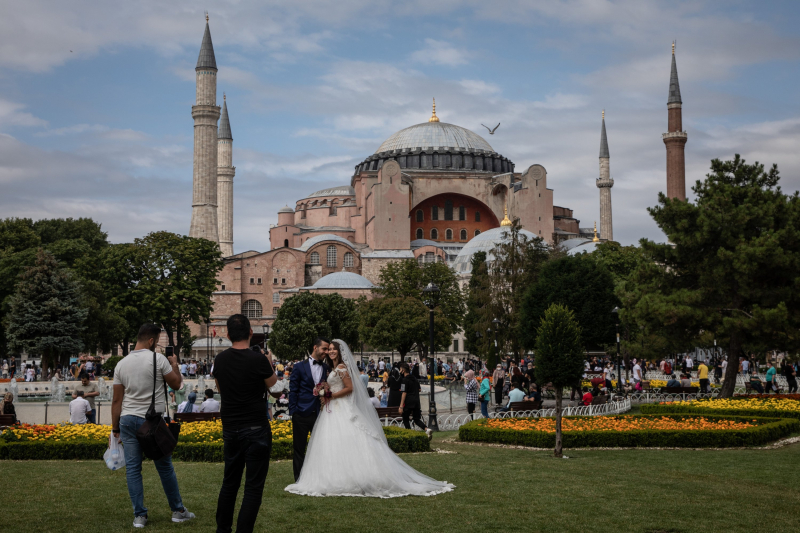Marriage
Marriage at a young age is very common in Turkish traditions and customs. Marriages between members of different social groups are uncommon because it is believed that a man should not lower his wife's standard of living. However, unions within one religious or ethnic group are very common, and inter-ethnic marriages are not uncommon.
The Turkish Islamic family code was abolished by the revolutionary government in 1926, and a slightly modified version of the Swiss Civil Code was adopted. The new family law recognizes only civil marriage ceremonies, both parties' mandatory consent, contract conclusion, and monogamy. However, in traditional Turkish society, the choice of future spouses and the location of the marriage ceremony is still made solely by the heads of families, with the newlyweds playing only a minor role. In this regard, all rituals are regarded as extremely important, as is the imam's blessing of the marriage. In terms of Turkish wedding traditions and customs, weddings here last several days and consist of several ceremonies that usually involve all family members and, in some cases, all residents across the street or even the entire village.
In Islamic tradition, the groom must pay the bride price, but in recent years, this tradition has faded - the amount of "bride price" (kalim) is being reduced based on wedding expenses or total family income, or simply transferred to the newlyweds to start their own family. Simultaneously, in provincial patriarchal communities, money raised to buy pride can be a serious impediment to marriage.











